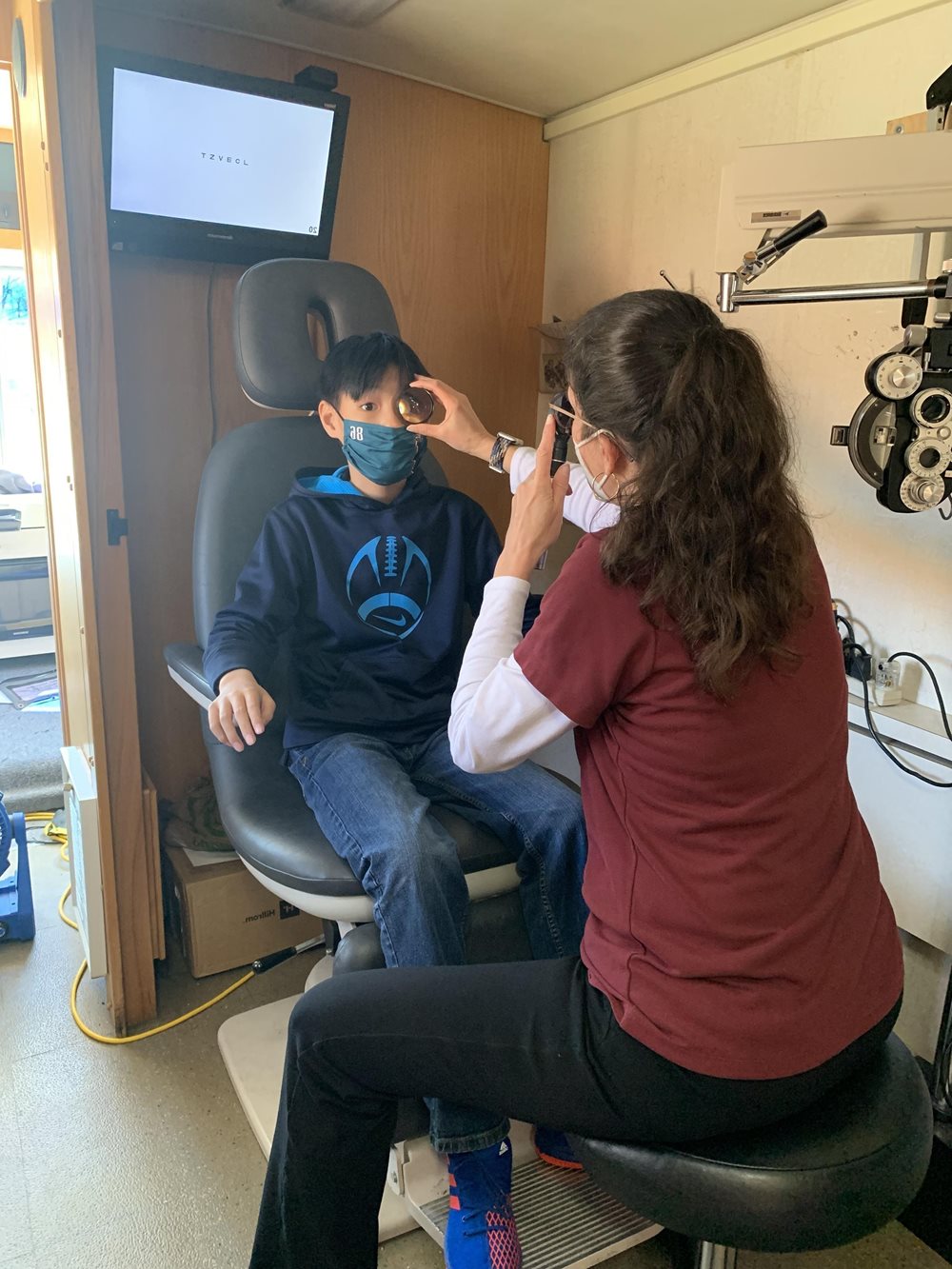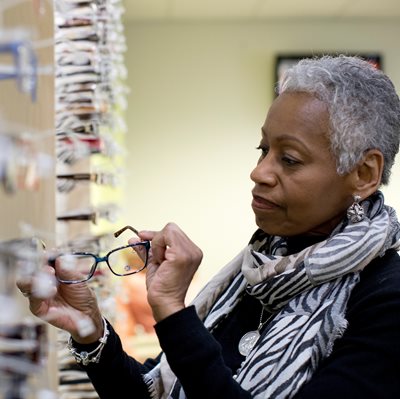Keep Your Eyes Healthy
 May is Healthy Vision Month and this year’s focus is on families. The Centers for Disease Control and Prevention (CDC) reports an estimated 11 million Americans aged 12 years and older could see better if they used corrective lenses.
May is Healthy Vision Month and this year’s focus is on families. The Centers for Disease Control and Prevention (CDC) reports an estimated 11 million Americans aged 12 years and older could see better if they used corrective lenses.
Although older adults tend to have more vision problems, preschoolers may not see as well as they can. The U.S. Preventive Services Task Force recommends vision screening for all children aged three to five years of age to diagnose conditions such as amblyopia, or lazy eye, which can be effectively treated if caught early.
Here are some ways to keep your eyes healthy and protect your vision.
Get regular, comprehensive dilated eye exams. Even if your eyes feel healthy, you could have a problem and not know it. That’s because many eye diseases don’t have any symptoms or warning signs. A dilated eye exam is the only way to check for many eye diseases early on, when they’re easier to treat.
Know your family’s eye health history. Eye diseases and conditions run in families, like age-related macular degeneration or glaucoma. Be sure to tell your eye doctor if any eye diseases run in your family.
Know your risk. Getting older increases your risk of some eye diseases. You might also have a higher risk of some eye diseases if you:
- Are overweight or obese.
- Have a family history of eye disease.
- Are African American, Hispanic, or Native American.
 Other health conditions, like diabetes or high blood pressure, can also increase your risk of some eye diseases such as diabetic retinopathy, an eye condition that can cause vision loss and blindness.
Other health conditions, like diabetes or high blood pressure, can also increase your risk of some eye diseases such as diabetic retinopathy, an eye condition that can cause vision loss and blindness.
Take care of your health. Healthy habits like eating well and being active can lower your risk for diseases and conditions that can lead to eye or vision problems, such as diabetes or high blood pressure.
- Maintain a healthy weight.
- Quit smoking. Smoking increases your risk of diseases such as macular degeneration and cataracts and it can harm the optic nerve.
- Eat healthy foods. Be sure to have plenty of dark, leafy greens like spinach, kale, and collard greens. Eating fish high in omega-3 fatty acids like salmon, tuna, and halibut is good for your eyes, too.
- Get active. Being physically active helps you stay healthy. It can also lower your risk of health conditions that can cause eye health or vision problems like diabetes, high blood pressure, and high cholesterol.
 Wear sunglasses. Wear sunglasses that block 99 percent to 100 percent of ultraviolet A (UVA) and ultraviolet B (UVB) radiation.
Wear sunglasses. Wear sunglasses that block 99 percent to 100 percent of ultraviolet A (UVA) and ultraviolet B (UVB) radiation.
Wear protective eyewear. Safety glasses and goggles are designed to protect your eyes during certain activities, like playing sports, doing construction work, or doing home repairs.
Give your eyes a rest. Looking at a computer for a long time can tire out your eyes. Rest your eyes by taking a break every 20 minutes to look at something about 20 feet away for 20 seconds.
The Eye Institute of Salus University (TEI) offers comprehensive exams for all ages. Scheduling a comprehensive eye exam at least once a year is an excellent first line of defense against eye disease but you should contact your doctor sooner if you notice any visual changes. To schedule an appointment at The Eye Institute, call 215.276.6111.